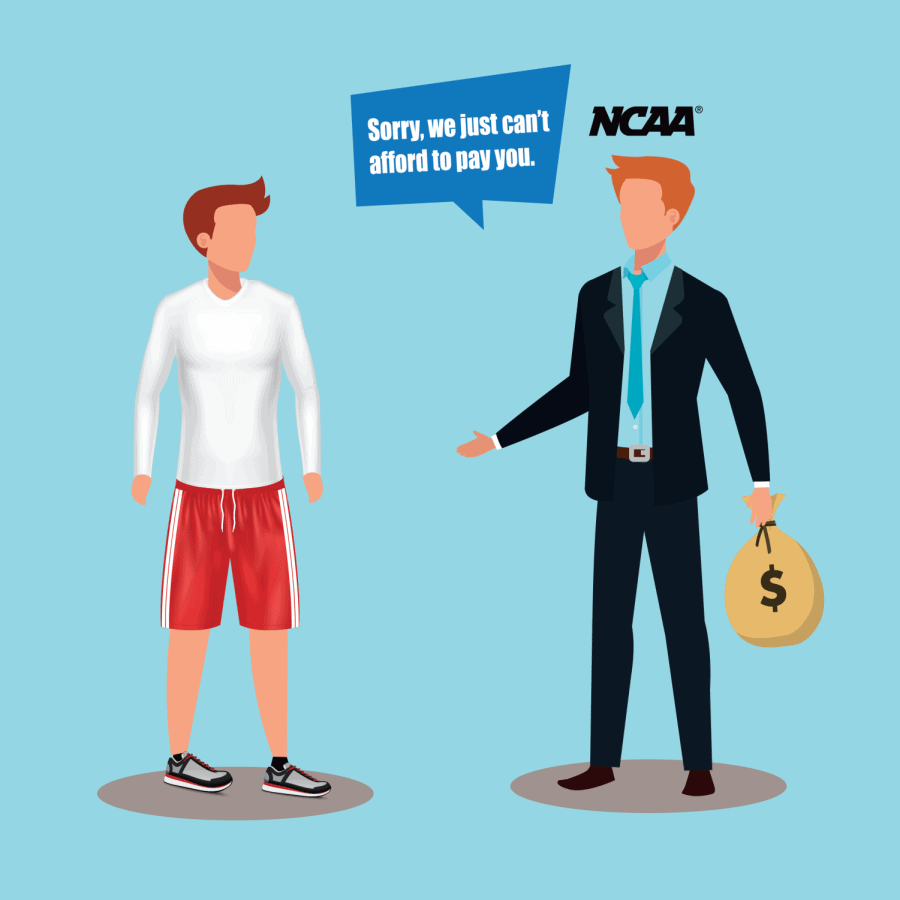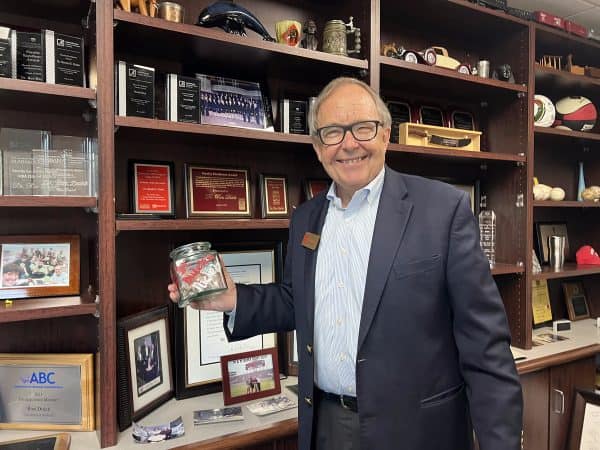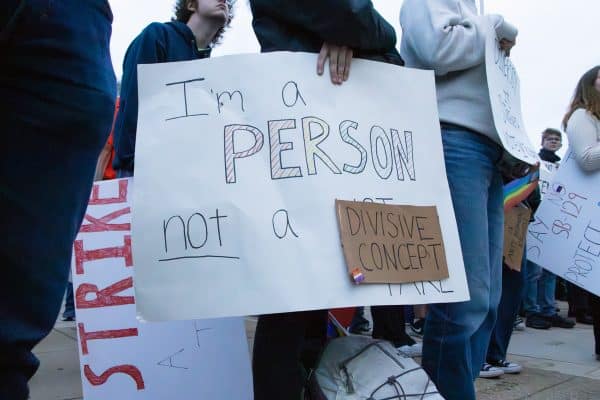Anything but Amateur: Pay our Athletes
September 17, 2020
College athletics has its ups and downs, its highs and lows. It has the nail-biters and the blowouts. It has the mighty elephant of The University of Alabama and bizarre banana slugs of the University of California Santa Cruz. It has the Second-and-26s and the Third-and-93s.
But the importance of college athletics is about more than just the viral moments; it’s about more than just a game. It’s about pride in your school and your state. It’s about history. It’s about family. It’s about the joy of the wins and the pain of the losses. It’s about comradery and togetherness.
Unfortunately, it’s also about the exploitation of its workers.
This fundamental feature of the college sports world does not represent the spirit of campus athletics, and it must change now.
The word “amateur” may not mean much to you or me, but it is a slap in the face to college student-athletes. This word prevents them from earning a cent from the sales of jerseys with their name on the back, and keeps them from unionizing to fight for their rights. According to the National Collegiate Athletic Association (NCAA), student-athletes are “amateurs.” Only professionals get paid, they argue, and paying student-athletes would have damaging effects on the non-revenue sports and on smaller institutions.
The claim that student-athletes are amateurs is almost laughable. “Amateur” sports don’t have multimillion-dollar stadiums. “Amateur” sports don’t have coaches who make seven figures a year. “Amateur” sports don’t require 20-hour work weeks. And that’s just the official NCAA limit; there have been accusations of football players working up to 40 hours a week in season. The NCAA can’t have it both ways: if college sports are truly amateur sports, take away the million-dollar coaches, stadiums and practice facilities. But they’ll never do that, so the only option is to pay them.
The NCAA likes to argue that they simply do not have the money to pay college athletes. However, the organization makes around $1 billion annually, so this claim simply does not hold water. Colleges like to pretend they’re not making money off college athletics by coming up with “expenses,” such as paying coaches or even building barber shops in football facilities, but the truth is that everyone is making bank. Everyone except the players, that is.
One of the most common arguments against paying student-athletes is that recruiting will come down to which college can pay the most. But there is a simple solution to this: institute a minimum wage for student-athletes. This should be standard across the board for student-athletes from all sports, regardless of how much money their sport earns (or loses). If smaller colleges and universities are unable to cover the costs, the NCAA should open their billion-dollar coffers. There is more than enough money to pay student-athletes – colleges could even continue giving scholarships and use football money to cover the costs of non-revenue producing sports. Paying players would be beneficial for all involved.
This pandemic has shown us how the lack of a players’ union has consequences. The NFL and NBA were both able to resume play after negotiations between the organizations and their respective players’ unions. However, student-athletes do not have access to that kind of negotiation power, as only paid employees have a legal right to unionize. Student-athletes rely solely on the whims of the NCAA to gain essential rights like the ability to opt out and still maintain eligibility. This also means that sports like college football cannot participate in the “bubble method”: secluding players from the rest of society during the season.
College sports can change lives and even history. Josh Jacobs lived in his father’s car, and now he’s playing in the NFL. Kylin Hill helped force the state of Mississippi to change its flag that was emblazoned with the Confederate flag. Paying student-athletes, and allowing them to unionize, would only serve to make their sports stronger. It would give players a stronger voice in making the decisions that directly affect them and would hold the NCAA accountable. It could even mean the return of the NCAA video games. More importantly, it would mean the end of student-athletes going to bed hungry or working at car washes after graduation.
College athletics have given me some of the best memories of my life, from Beth Mowins’s declaration that “Alabama wears a crown of Crimson!” when the softball team brought home our (and the SEC’s) first national championship, to Chris Fowler’s proclamation, “The Crimson Tide will not be denied!” following the instantly iconic 2 and 26th to secure the Tide’s 17th national championship. It is long past time we give the student-athletes who make those memories the respect, dignity and compensation they deserve.











